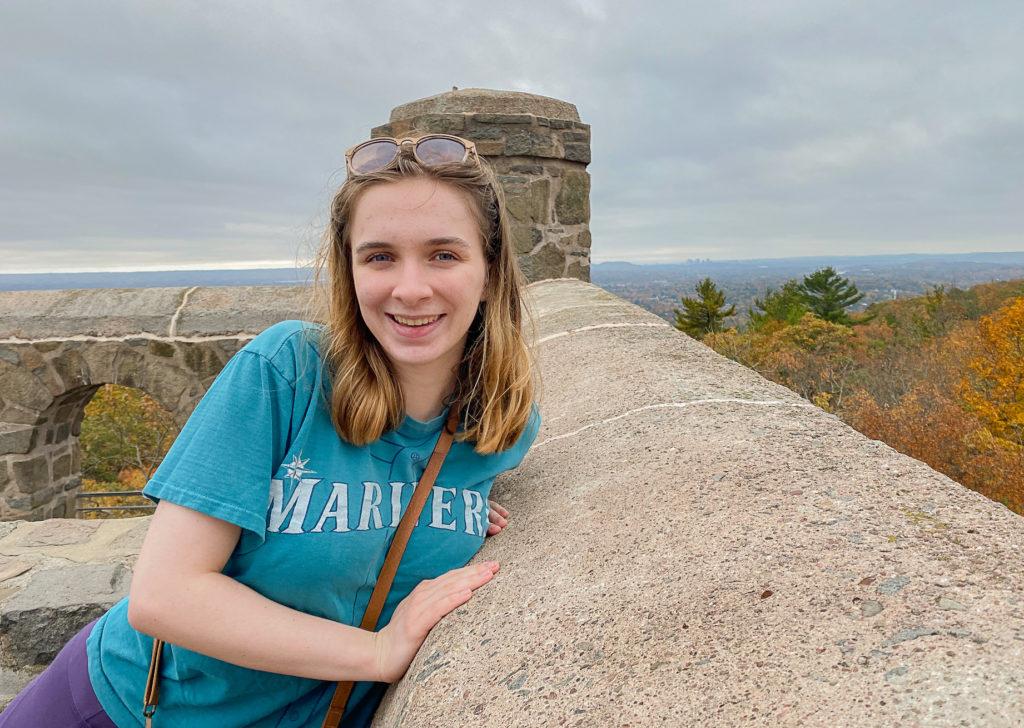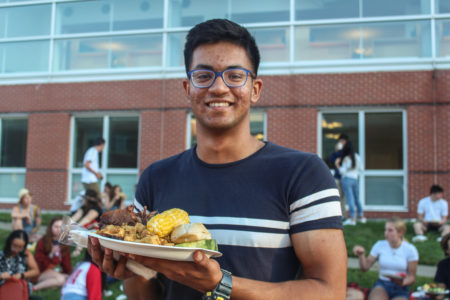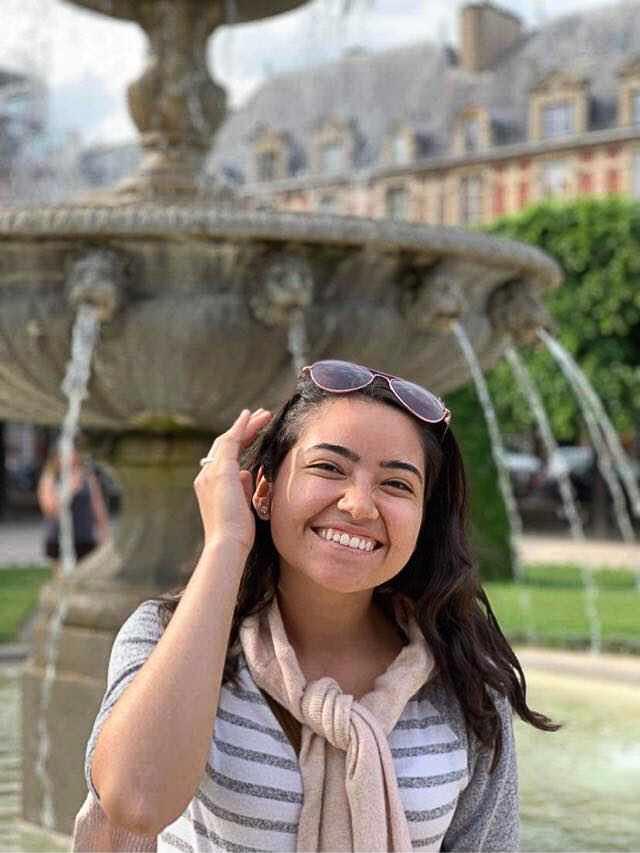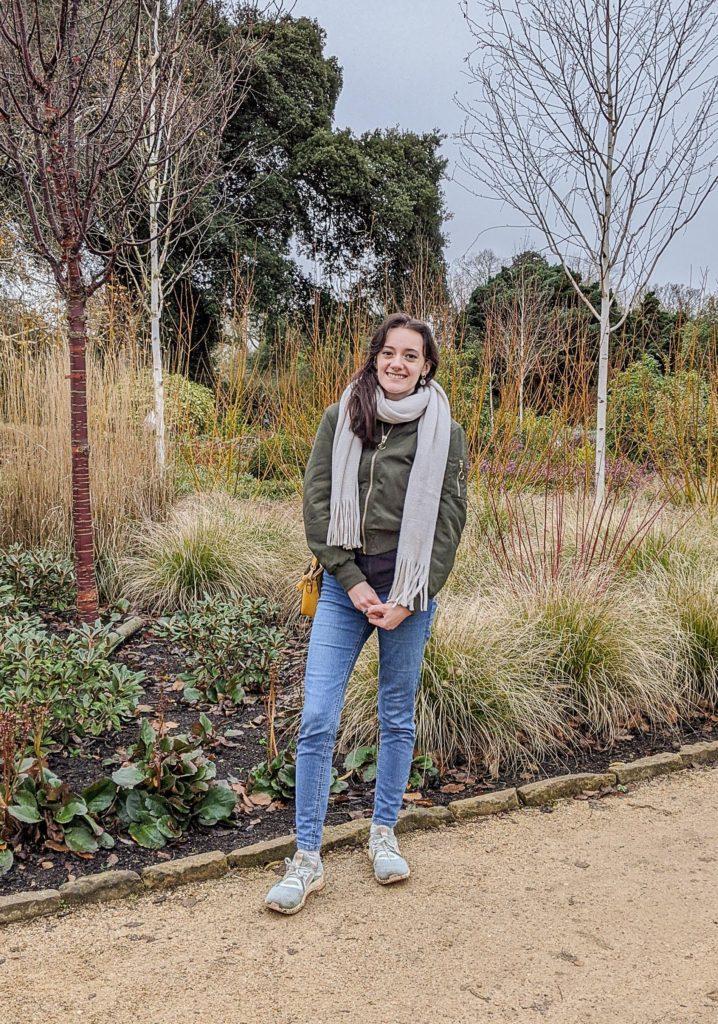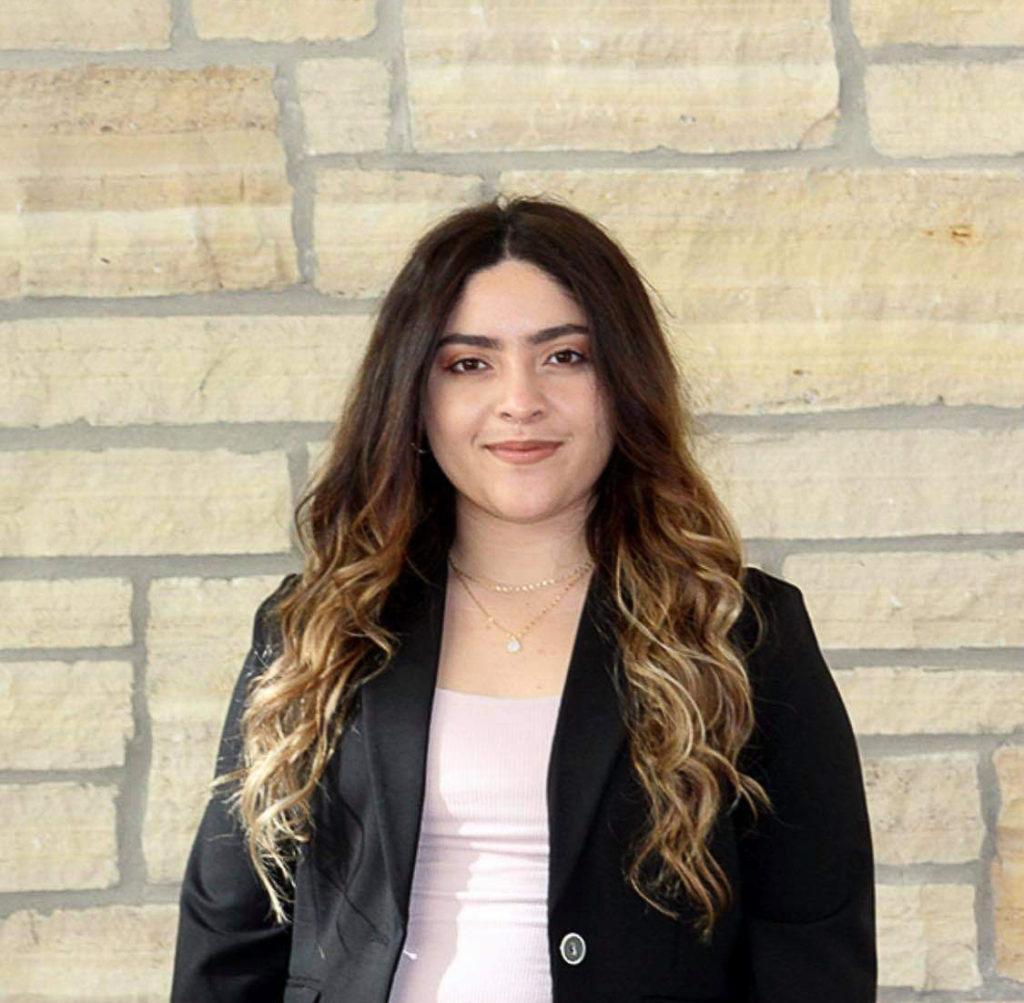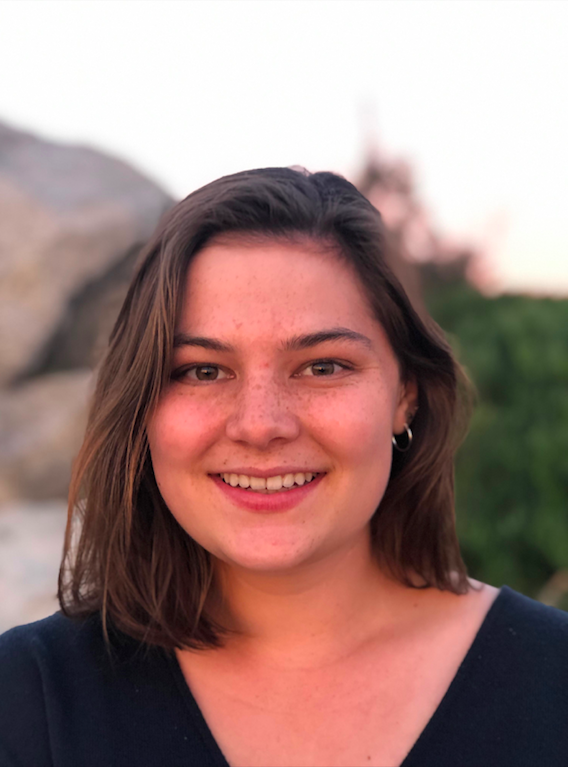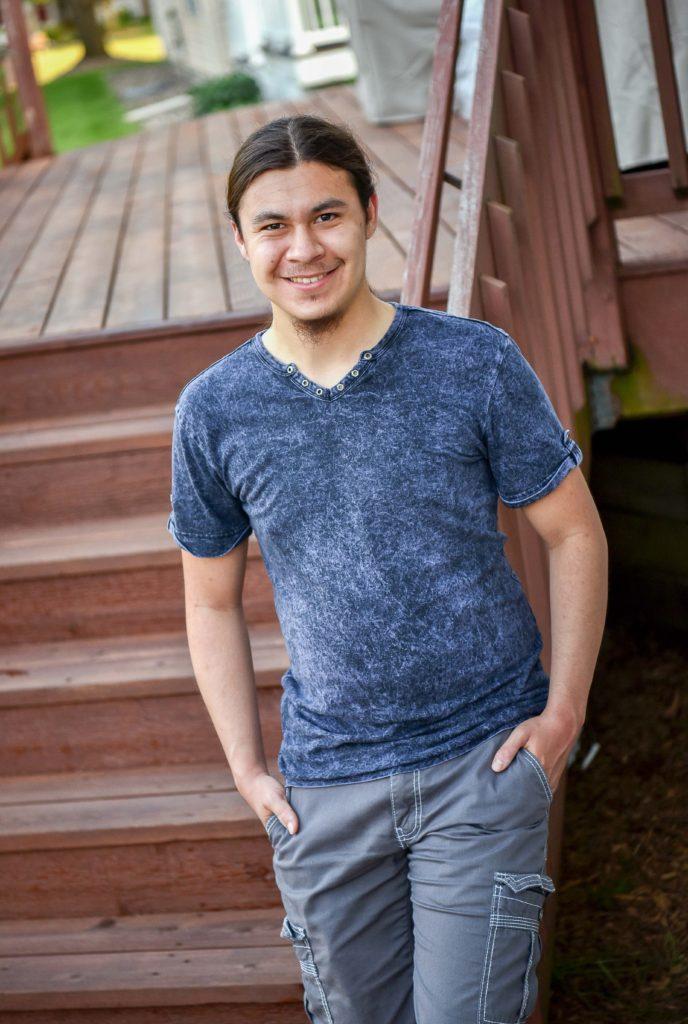In some ways, you might think that the four years Molly Nelson `21 spent as a student at Grinnell were predestined – her very existence stems from her parents meeting in Smith Annex during their time at the school as undergrads. But after speaking with Molly about her college experience, it seems that her story is more about the chance experiences that led her to a path of her own, even if it followed a familiar direction.
Nelson was initially hesitant about the choice to move to a town barely one percent of the size of her home city of Seattle, Wash., especially paired with her caution at wanting to have her own reasons for choosing the school besides her parents being alumni. It became clear, though, that the school’s community and academic values would be a good match.
“In general I think it took me probably through first year to feel comfortable and find my people and hit my stride at Grinnell, but after doing so I didn’t ever look back,” she told me.
One way Nelson’s predetermined and actual plan aligned was her choice of majors, psychology and Spanish. However, she took a more unconventional path through the psychology major, supplementing the core requirements with a more eclectic mix of special topics like “Perception and Sensation,” one of her favorite courses. Nelson’s initial conviction to major in Spanish certainly did not go untested either.
“I have to say, probably every year taking Spanish classes I questioned everything because it is absolutely just the hardest thing I’ve ever done, trying to learn Spanish. Learning a second language is something else and I respect everyone who does it so much,” said Nelson.
If Smith Annex is the defining spot for Nelson’s parents, hers just might be Noyce, despite its formidable reputation. During the first week of classes her first year, Nelson bumped into a fellow new student, Kate Kwasneski `21, closely inspecting the confusing map at the science building’s entrance for a psych classroom. Nelson introduced herself, found out she was in the same class and ventured into the labyrinthine halls of Noyce with her newfound friend.
“It just was sometimes very serendipitous, meeting people,” said Nelson.
Kwasneski and Nelson solidified their friendship through their involvement in Grinnell’s National Alliance on Mental Illness (NAMI) chapter, of which they went on to become the president and vice president, respectively. What started as an initial four-person meeting has turned into the creation of a student advisory council in partnership with Student Health and Wellness (SHAW), a major accomplishment in the ongoing push for more mental health support in Grinnell’s consistently rigorous and stressful environment.
“I wonder how much of [Grinnell’s schoolwork] is contributing to my learning and whether that learning could be done with less work. Perhaps there are other values that we should be focusing on as a community other than just pure learning,” said Nelson. “I think focusing on good citizenship, on being a healthy well-rounded person, those are things that are equally important. … Nowhere in a liberal arts education is it important for someone to be incredibly stressed out and overwhelmed.”
The passion behind Nelson’s words is evident.
“I think more than ever [mental health] needs to be everyone’s responsibility and the community reevaluating whether what we’re doing is actually contributing to a culture of health or wellness or whether it’s hurting both you and others,” she added. Nelson has also been heavily involved with Disability Resources as a student worker, an experience she said led her to some of the best people she knows at Grinnell and a disability justice perspective that “revolutionized” the way she thinks.
Another important community for Nelson was Eco House, the since-discontinued project house on East Street where she lived her second year. “That was one of my favorite years at Grinnell,” she said, citing the close-knit community and the misadventures of the house’s fuzzy best-kept secret: an orange cat named Katom.
Though cats are technically not allowed in college-owned off-campus housing, Katom was somewhat grandfathered in from her pre-rule change residence at the house. I will note, though, this secretive element of Nelson’s story about Katom made it even more of a treat to hear.
“She was very rambunctious and really loved to go around on campus. At one point she was hanging out outside the doors of Noyce,” Nelson told me. “We were just like, ‘Okay, whatever that’s fine, it was the middle of the day, she knows how to get around, it’s fine.’”
After leaving Katom to her feline devices to study with a friend in the math commons, Nelson got a call from a friend shortly after. An amused voice asked her to verify Katom’s description, which she did, waiting for an explanation.
“He was like, ‘She’s in Kistle Library right now.’”
Nelson frantically tracked the studious eco-kitty to Noyce’s infamous glass cube, chasing her out of the building, through the HSSC construction site and all over campus until the both of them were forced to relent to a stalemate walk home.
“There was really no point to me doing that because I wasn’t able to catch her, but that’s definitely one of the most favorite things that has ever happened to me,” said Nelson with a laugh. “Even though I didn’t want Noyce to be one of my favorite buildings on campus, because I feel like objectively it’s kind of terrible, it has a special place in my heart.”
Another surprise for Nelson was a common and disappointing one for many seniors: the interruption of her study abroad semester by the COVID-19 pandemic. On a bus in Buenos Aires, Argentina, the growing uneasiness about the new virus quickly escalated after reading a tweet from the U.S. embassy in Argentina stating citizens must fly back immediately.
“I remember them [the directors of my program] saying ‘The U.S. wouldn’t tell their citizens this sort of information over a tweet, would they?’, and I was like ‘Oh my gosh,” said Nelson. Even a year later, her sigh indicated the disappointment is still palpable.
Though Nelson’s final year of college looked unimaginably difference than she would have expected, she emphasized the importance of the communities she was able to sustain virtually, like NAMI and the SHAW student council. This month, after a grueling job search and 60 applications, Nelson began work as a program coordinator for Seattle Children’s Hospital, working with families to address disparities in the state’s children’s mental health care system.
“I’m just so unbelievably excited to do it. … It’s a feeling of definitely kind of wanting to move on to the next thing, but more so from the pandemic than from Grinnell itself,” said Nelson. “What other time in your life are you going to be surrounded by like-minded people? I just really enjoy how committed people at Grinnell are to their issues and passions that they want to resolve.”

















































